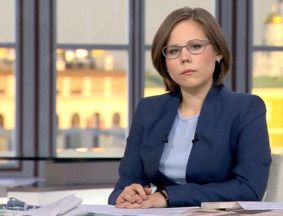
NIKOPOL/ KYIV: Russia’s FSB security services said on Monday that Ukraine was behind a car bombing in the outskirts of Moscow that killed Daria Dugina, the daughter of hardline Russian ideologue Alexander Dugin.
“The crime was prepared and committed by Ukrainian special services,” the FSB said in a statement carried by Russian news agencies, adding that the perpetrator had since fled to EU member Estonia.
The 29-year-old television commentator Daria Dugina was killed by an explosive planted in the SUV she was driving. Earlier, a former Russian opposition lawmaker, Ilya Ponomarev, said an unknown Russian group, the National Republican Army, claimed responsibility for the bombing.
The Associated Press couldn’t verify the existence of the group. Ponomarev, who left Russia after voting against its annexation of Crimea in 2014, made the statement to Ukrainian television. Ukraine officials have denied involvement.
Also yesterday, Ukraine’s commander-in-chief said, nearly 9,000 Ukrainian soldiers have been killed since Russia’s attacks began on February 24.
Valeriy Zaluzhny told a forum that Ukraine’s children needed particular attention “because their fathers have gone to the front and are maybe among the nearly 9,000 heroes who have been killed”.
Meanwhile, Russian shelling across the river from Ukraine’s main atomic plant wounded four people on Monday, an official said, only hours after the latest international pleas to spare the area from attacks to prevent a nuclear disaster.
Nikopol, on the the opposite bank of the Dnieper River and about 10 kilometers (six miles) downstream from the Zaporizhzhya nuclear plant, came under fire three times overnight from rockets and mortar shells, hitting houses, a kindergarten, the bus station and stores.
Mayor Oleksandr Saiuk said four people were wounded, including two who were hospitalized.
Reports of sustained shelling around Europe’s largest nuclear power plant further highlighted the dangers of a war that will hit the half-year mark on Wednesday.
Fear and unease
After UN Secretary General Antonio Guterres again urged caution during a visit to Ukraine last week, US President Joe Biden further discussed the issue with the leaders of France, Germany and Britain on Sunday.
The four leaders stressed the need to avoid military operations in the region to prevent the possibility of a potentially devastating nuclear incident and called for the UN’s atomic energy agency to be allowed to visit the facilities as soon as possible.
In Crimea, anxiety has spread further following a spate of fires and explosions at Russian facilities over the past two weeks. The governor of Sevastopol, Mikhail Razvozhaev, ordered that signs showing the location of bomb shelters be placed in the city, which had long seemed untouchable.
Monday’s statement follows a series of drone incursions into Sevastopol, which is home to Russia’s Black Sea Fleet. A drone exploded at the fleet’s headquarters on July 31 and another was shot down over it last week. Authorities also say air-defense systems have shot down other drones.
Razvozhaev said on Telegram that the city is well protected, but “it is better to know where the shelters are.’’
Russian President Vladimir Putin didn’t mention Russia’s military operation in Ukraine during a speech marking National Flag Day on Monday, but echoed some of the justifications cited for sending in troops.
“We are firm in pursuing in the international arena only those policies that meet the fundamental interests of the motherland,’’ Putin said. He maintains that Russia sent troops into Ukraine as effectively a protective measure against the encroaching West.
“The desire to live according to one’s will, to choose one’s own path and follow it, has become part of the genetic code of our people,’’ he said.











